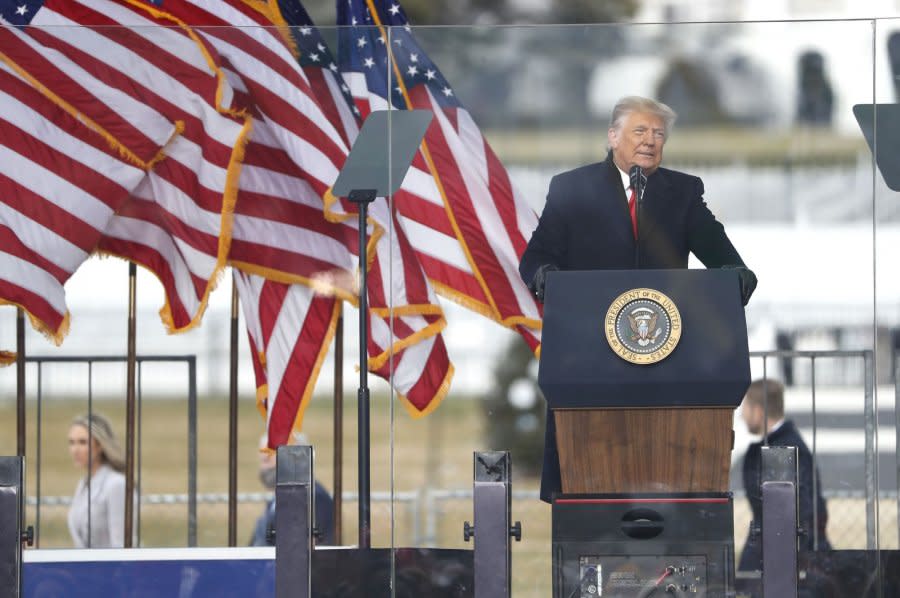Trump files multiple challenges to 2020 election subversion case

- Oops!Something went wrong.Please try again later.
- Oops!Something went wrong.Please try again later.
Oct. 24 (UPI) -- Former President Donald Trump filed a challenge to federal charges alleging he tried to subvert the 2020 presidential election results.
In three motions filed just before midnight Monday, Trump's attorneys argued that his actions were protected by the First Amendment, that he can't be tried criminally after he was acquitted in his Senate impeachment trial and that he is being targeted by President Joe Biden's administration.
Trump's lawyers argued the indictment "does not explain" how his actions were connected to the charges he faces for conspiring to obstruct the election certification process, conspiring to deprive Americans of a fair voting process and conspiring to defraud government officials overseeing the election.
"Because the government has not charged Trump with responsibility for the actions at the Capitol on Jan. 6, 2021, allegations related to these actions are not relevant and are prejudicial and inflammatory," Trump's legal team wrote.
Attorneys for Trump provided the example that his efforts to submit an alternative slate of presidential electors could not be proven as an act of deceit or trickery.
They also have argued that Trump's actions were protected by the First Amendment and that convicting him would criminalize acts such as lobbying or protest.
"Therefore, the court should strike these allegations from the Indictment. The indictment must be dismissed because it seeks to criminalize core political speech and advocacy that lies at the heart of the First Amendment," Trump's lawyers wrote.
Trump also argues double jeopardy, saying the U.S. Senate had already acquitted him in an impeachment trial shortly after leaving office and he cannot be tried again for the same or related charges.
The Constitution says a president who is impeached and removed from office can later by charged by "Indictment, Trial, Judgement and Punishment."
Trump's lawyers, however, argue that the wording "presupposes that a president who is not convicted may not be subject to criminal prosecution."
"The Constitution's plain text, structural principles of separation of powers, our history and tradition and principles of Double Jeopardy bar the Executive Branch from seeking to re-charge and re-try a president who has already been impeached and acquitted in a trial before the U.S. Senate," they said.
The filings come in addition to an earlier challenge, which claimed Trump was immune from prosecution since he was serving as president at the time the alleged crimes took place.

